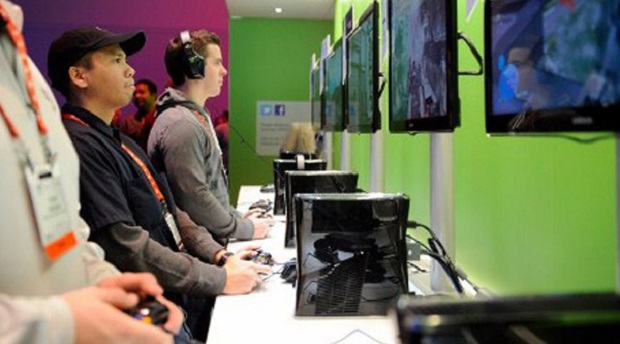
Attendees play video games at Microsoft’s Xbox 360 display at the 2012 International Consumer Electronics Show at the Las Vegas Convention Center in Las Vegas, Nevada. AFP FILE PHOTO
UTRECHT, Netherlands — The days of playing your favorite game for hours at a time to stay competitive in esports are gone, with gamers now focusing on brain development, if one leading team is to be believed.
At the Team Liquid training center in the Dutch city of Utrecht, coach David Tillberg-Persson, alias “Fuzzface,” frowns and scratches his beard, focused, eyes glued to a screen.
Using the keyboard, the 28-year-old former Swedish player must recognize shapes and “catch” red dots, anticipating, identifying and reacting with increasing speed.
Tillberg-Persson is testing a new training program before it is made available to the Team Liquid players themselves.
Rapidly professionalized
Team Liquid is one of the biggest in the professional esports leagues and they are keen to keep their edge, with the focus on brain training adding to the use of coaches.
The image of the overweight teenager locked in his room is a distant memory in a sector that has rapidly professionalized, with prize money worth millions of dollars, and players leading disciplined lifestyles.
With new generations of gamers adding to the pool of talent, competition is fierce and teams are now seeking to optimize the cognitive aspect, which is crucial in a field where every millisecond counts.
‘Revolutionary’
Described as “revolutionary” by Team Liquid, the new training program, dubbed The Pro Lab, has also been implemented in California where the team is based.
“We believe The Pro Lab will make waves in the esports industry and beyond,” Dutchman Victor Goossens, founder and co-CEO of Team Liquid, said in a statement.
RELATED STORIES
In world of lockdown, video games abound
Video games ruin studies? But here they are studied
DepEd taps video game Minecraft as learning tool